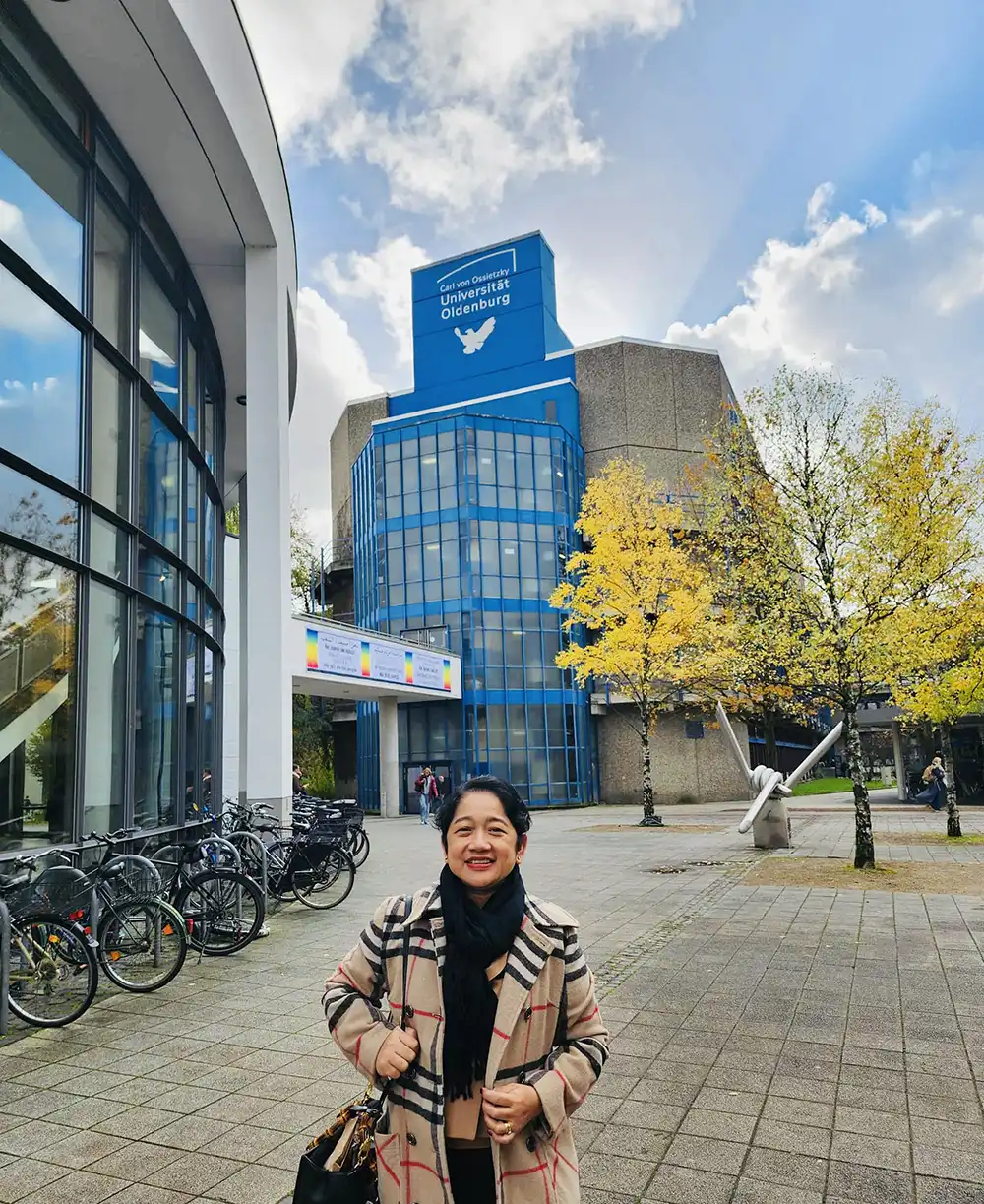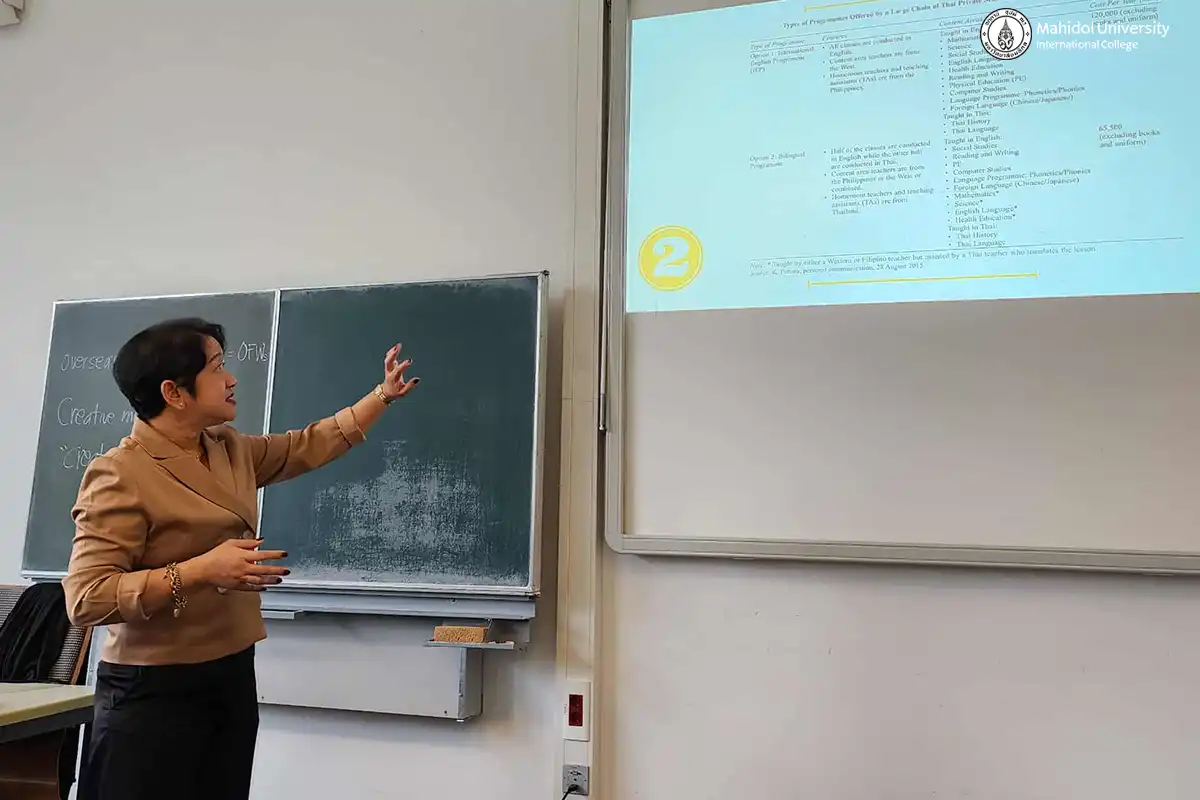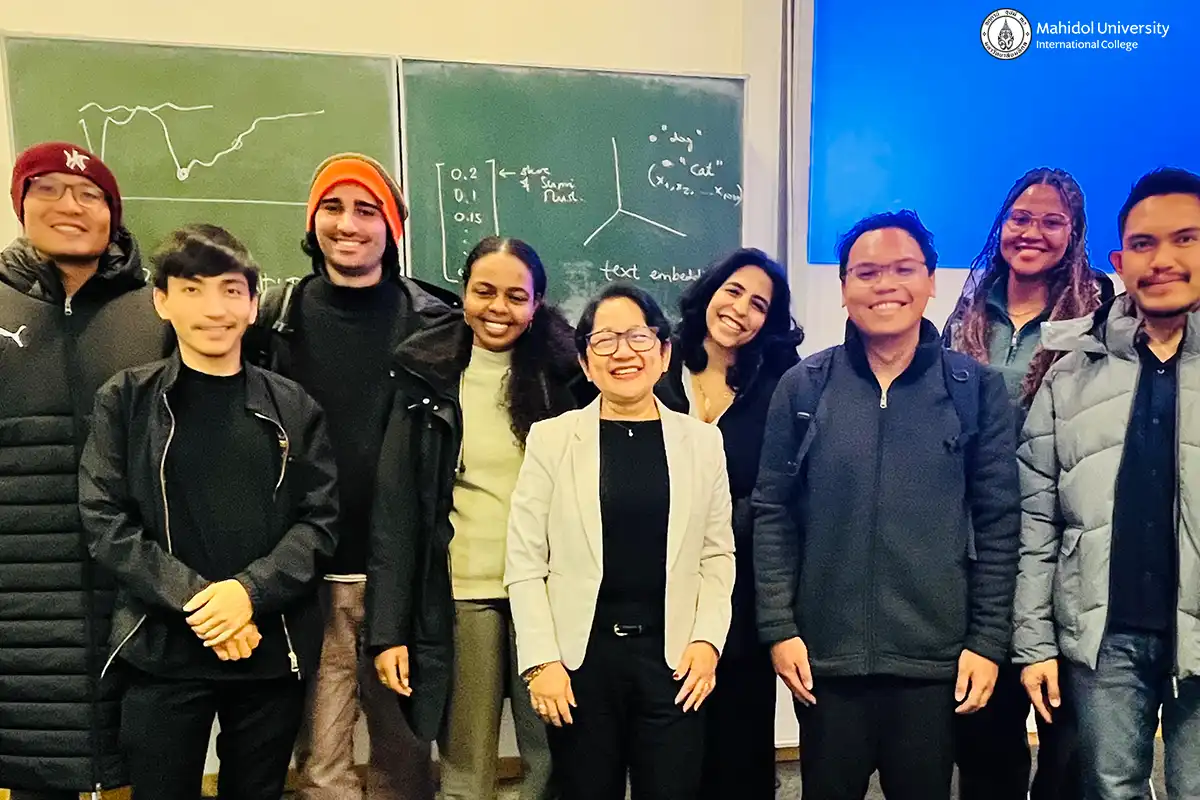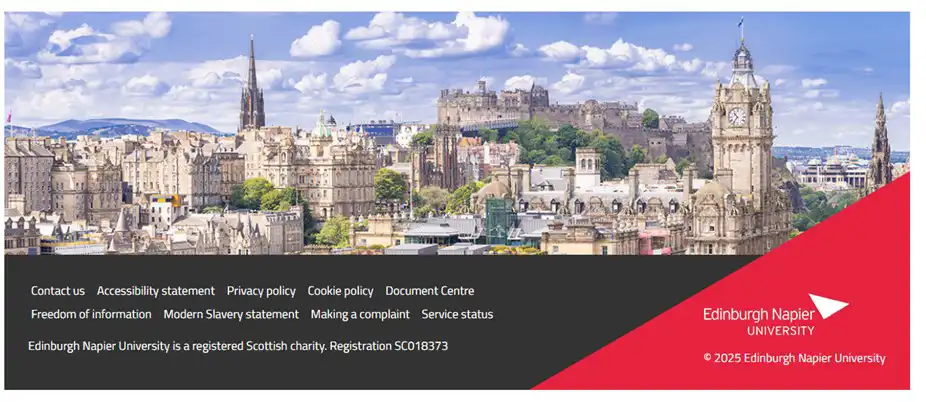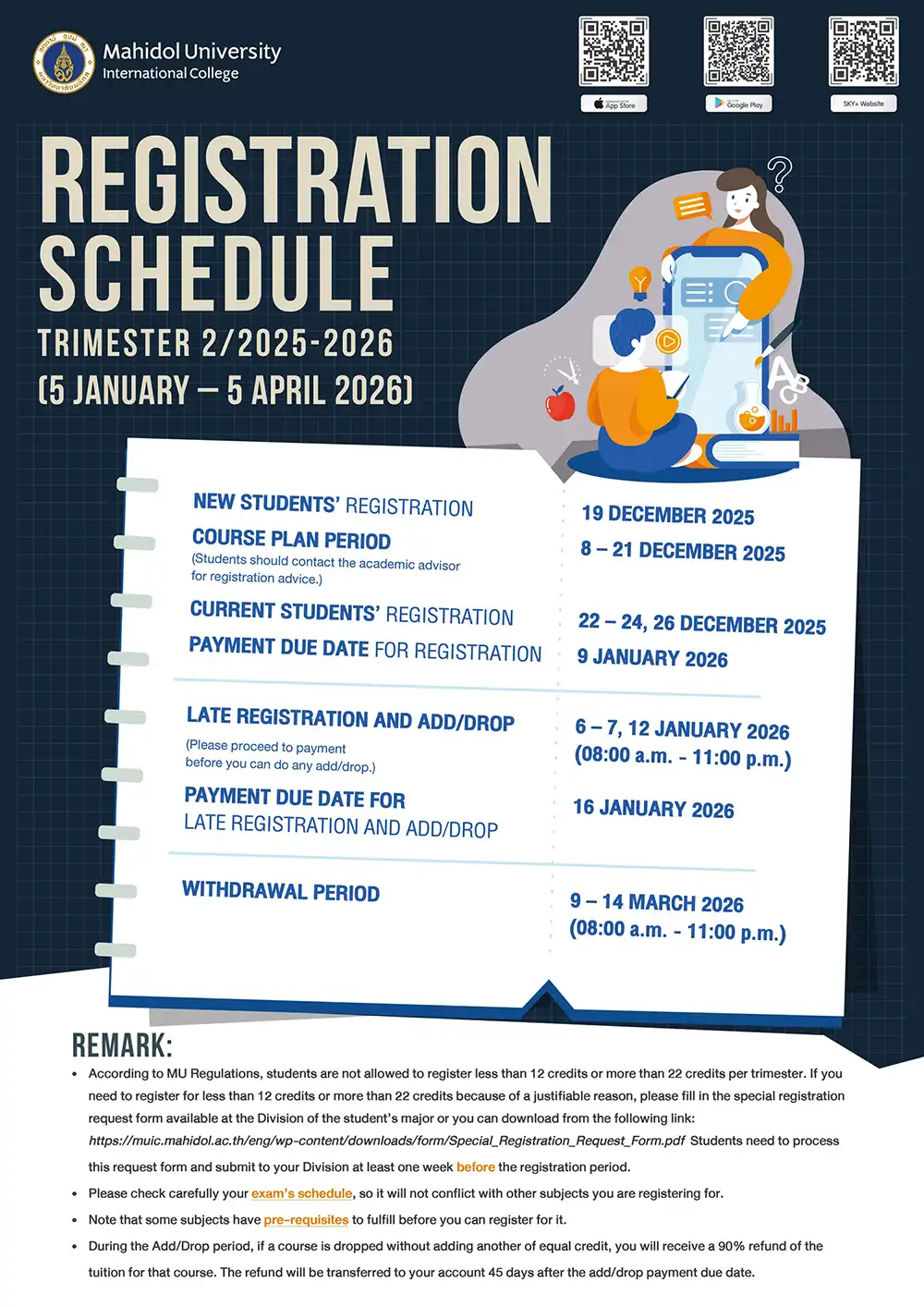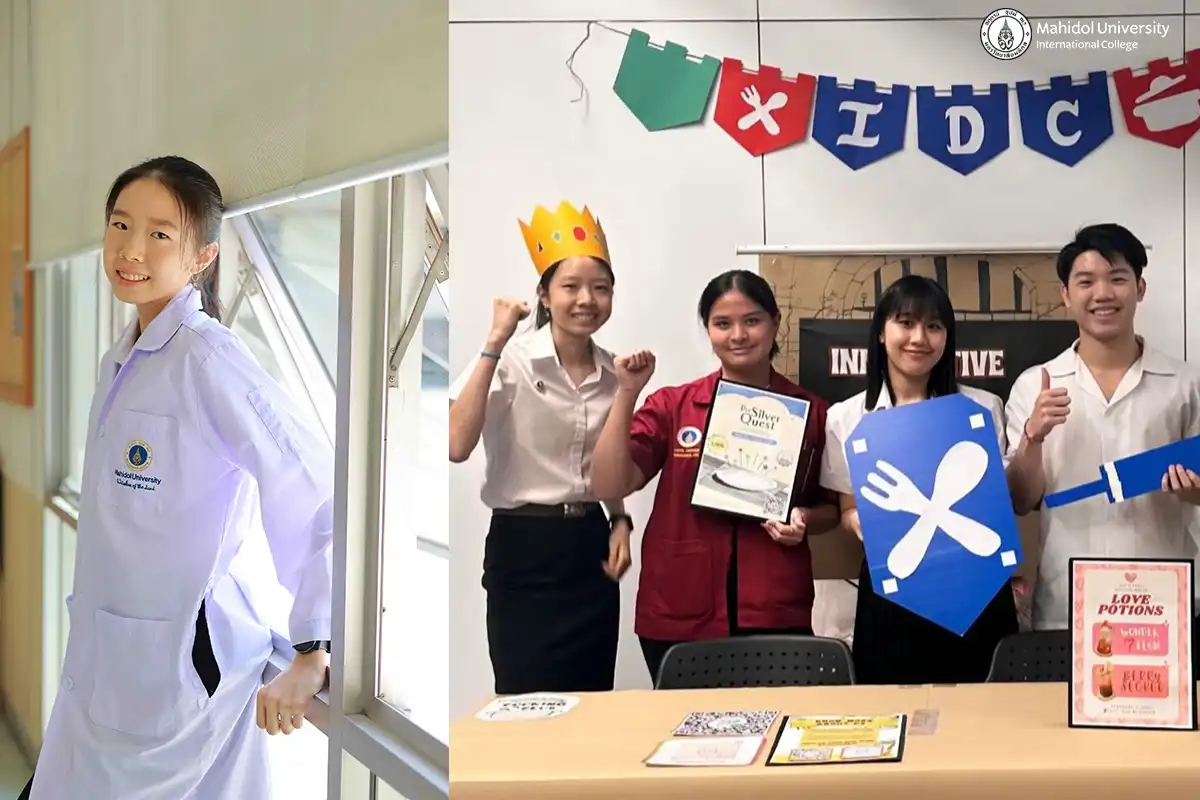ICIC Ajarn Brings Southeast Asian Migration Perspectives to Europe’s EMMIR Program
November 12, 2025 2025-11-12 10:26ICIC Ajarn Brings Southeast Asian Migration Perspectives to Europe’s EMMIR Program
“Migration is not just about movement—it’s about memory, dignity, and power,” said Asst. Prof. Analiza Liezl Perez-Amurao, Ph.D., when asked about her recent lecture-workshops for the European Master in Migration and Intercultural Relations (EMMIR) program at the University of Oldenburg, Germany from October 27 to 29, 2025.
As the first lecturer to bring Southeast Asian migration perspectives intersecting with linguistic anthropology to the EMMIR program, Dr. Perez-Amurao—a faculty member of the Intercultural Studies and Languages (ICIC) program of Mahidol University International College (MUIC)—brought with her insights grounded in Southeast Asia’s cultural and linguistic realities. Her lectures were the result of nearly a year of preparation—from early curriculum discussions and module design to meetings with EMMIR program officials during an international conference in Bangkok that finalized the plan.
The cohort—composed of students from Egypt, Sudan, Afghanistan, Italy, Germany, the Philippines, Indonesia, China, and Japan—reflected the diversity and complexity of global migration that Dr. Perez-Amurao’s work continually explores.
The first module, “Social Justice in the Southeast Asian Workplace Context,” examined Thailand’s education sector as a site of both opportunity and inequality shaped by postcolonial histories. Drawing from her SOJOURN, Routledge and encyclopedia publications, she unpacked the politics of language, race, and representation in migrant employment.
The second module, “Southeast Asian Migrants’ Transnational Experiences,” turned to the personal dimensions of migration—how people reconstruct home, identity, and belonging across borders. Students applied theories of transnationalism and cultural bereavement to analyze real-life migrant narratives.
Each module culminated in advocacy workshops where participants created initiatives promoting equity, awareness, and policy reform. The workshops also drew from Dr. Perez-Amurao’s articles in The Jakarta Post, Asia Times, and Rappler, which vividly portray the lived experiences of Southeast Asian labor migrants—linking journalism, scholarship, and advocacy.
The guest lectures also tied neatly with Dr. Perez-Amurao’s MUIC course, ICIC 251: Contemporary Southeast Asia – Cultural Studies, where she guides students to critically explore postcolonialism, migration, and identity formation.
Aligned with the United Nations Sustainable Development Goals—particularly SDG 4 (Quality Education), SDG 8 (Decent Work and Economic Growth), and SDG 10 (Reduced Inequalities)—the lectures reinforced the role of intercultural education in advancing fairness, inclusion, and global understanding.
Her EMMIR engagement exemplifies MUIC’s mission of global academic service—bridging borders through knowledge and ensuring Southeast Asian voices are part of the world’s ongoing dialogue on migration and intercultural relations.
The Intercultural Studies and Languages (ICIC) major offers students the opportunity to delve deeper into languages, culture, philosophy, and humanities. For more details, please click here:https://muic.mahidol.ac.th/eng/programs/undergraduate-programs/humanities-and-language/english-studies-program/
